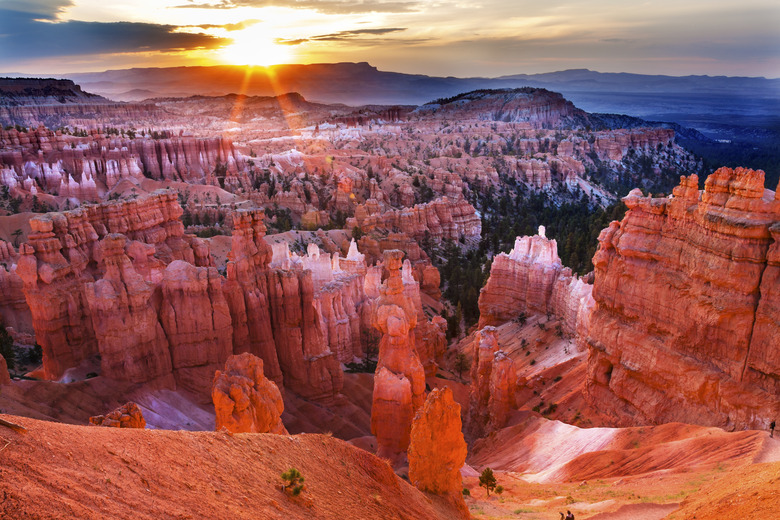Factors Affecting Weathering Processes
The breakdown and alteration of rocks and minerals is known as weathering. Weathering takes place at or near the Earth's surface. Weathering is the first step in other geomorphic and biogeochemical processes. Weathering also contributes to a major source of sediments for erosion and deposition. In addition, weathering contributes to the formation of soil because it provides mineral particles like sand, silt, and clay.
Products of Weathering
Products of Weathering
Weathering can result in the complete loss of particular atoms or compounds from the weathered surface. Weathering can lead to the addition of specific atoms or compounds to the weathered surface. Weathering of rocks and minerals can breakdown one mass into two or more masses with no chemical change in the mineral or rock.
Physical or Mechanical
Physical or Mechanical
Physical or mechanical weathering is the breakdown of a substance by disintegration. Frost wedging occurs when there is an alternation between freezing and thawing of moisture in the openings or cracks or rock which results in the breakdown of the rock. Unloading or exfoliation is the erosion of upper rock portions which cause underlying rocks to expand resulting in cracking and peeling. Organic activity is the activity of plant and burrowing animals that can cause a rock material to disintegrate.
Chemical
Chemical
Chemical weathering is the breakdown of a substance by decomposition, thus resulting in a formation of new mineral matter. Chemical processing can result from a number of different processes. The kinds of chemical processing include:
- hydrolysis
- solution
- oxidation
- reduction
- hydration
- carbonation
The chemical weathering process is most affected by the climate, because climatic conditions control the rate of weathering.
Factors Affecting
Factors Affecting
One factor that affects weathering is the total surface area of mineral or rock; the processes of weathering increases proportionately with the amount of open space at the surface of the rock and extend through the rock. Climate is another factor that affects the weathering process. Composition of rock or mineral substance can also affect the process of weathering. The final element that affects weathering is time.
Cite This Article
MLA
Miller, Versiera. "Factors Affecting Weathering Processes" sciencing.com, https://www.sciencing.com/factors-affecting-weathering-processes-8392162/. 13 March 2018.
APA
Miller, Versiera. (2018, March 13). Factors Affecting Weathering Processes. sciencing.com. Retrieved from https://www.sciencing.com/factors-affecting-weathering-processes-8392162/
Chicago
Miller, Versiera. Factors Affecting Weathering Processes last modified March 24, 2022. https://www.sciencing.com/factors-affecting-weathering-processes-8392162/
